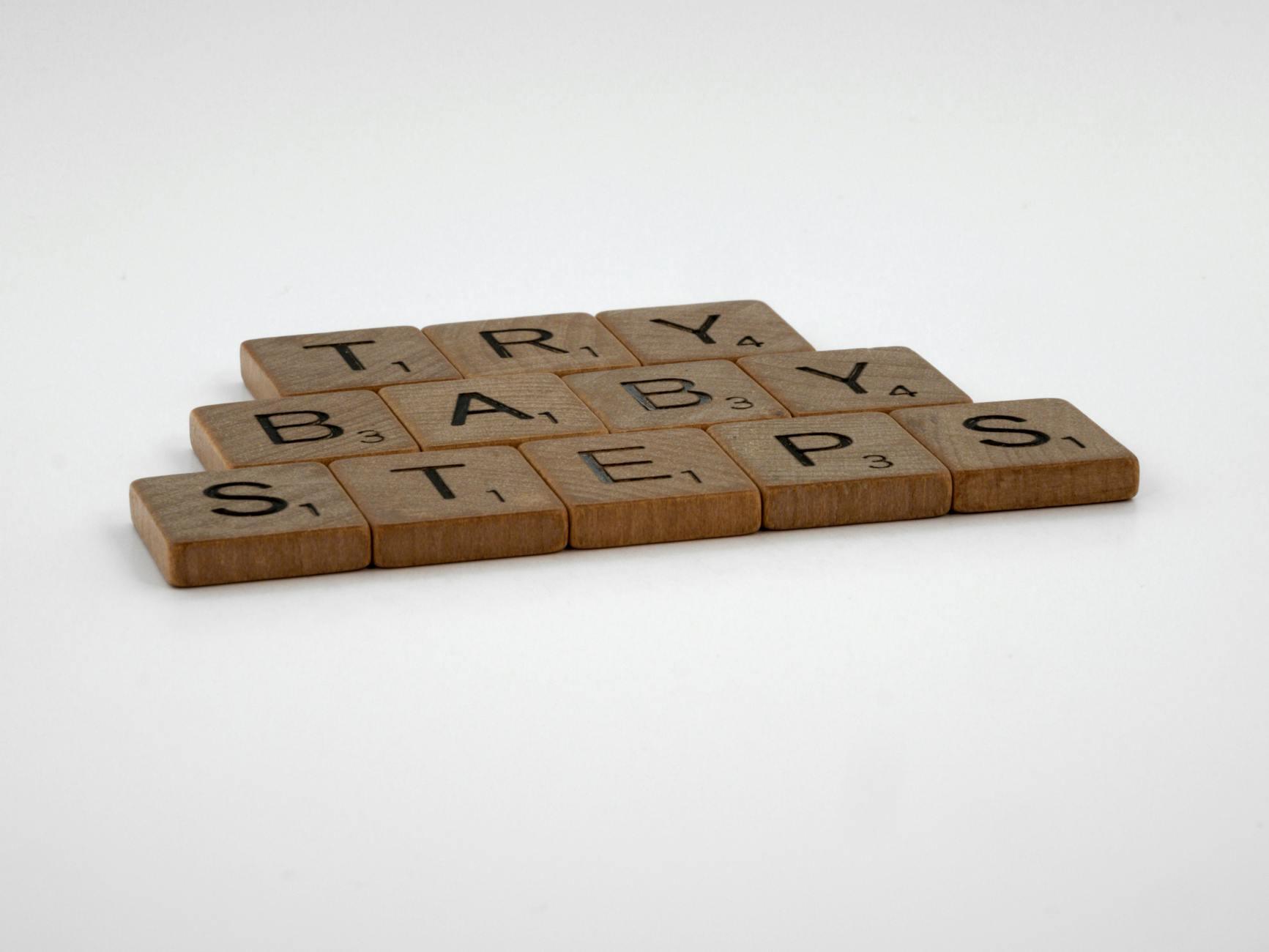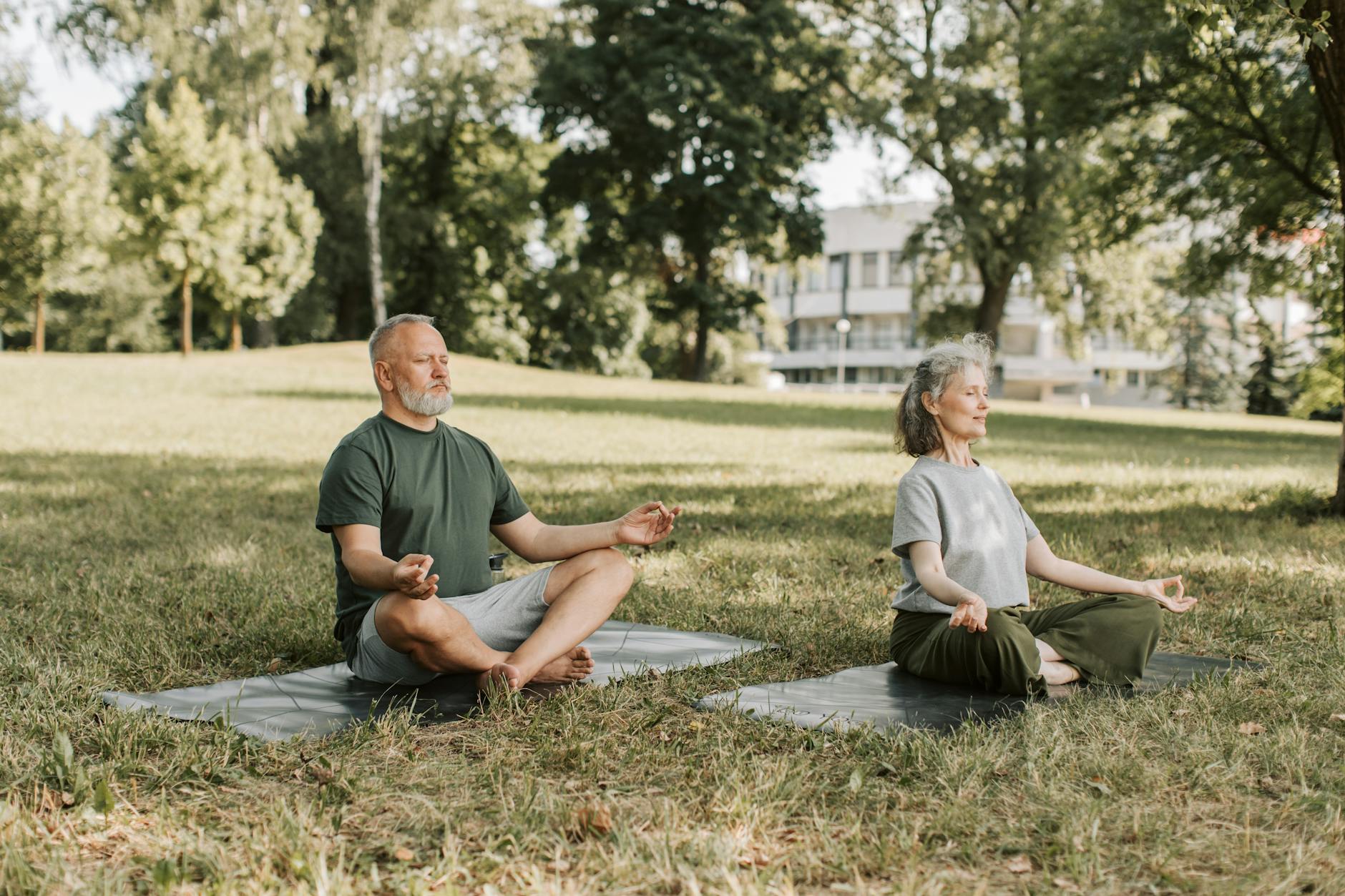Living a healthy lifestyle is important, but it can sometimes seem confusing. With so much advice out there about diets and exercise, it’s easy to feel lost. The good news is that being healthy doesn’t have to be hard or boring. It’s all about making smart choices that help you feel your best. In this blog post, we’ll share 11 simple tips to help you live a healthier life. Let’s get started!
1. A Healthy Lifestyle Starts With Small Goals
Instead of making big, sudden changes to your lifestyle, start with steps you can easily follow each day. For example, if you’re new to exercising, try going for a 10-minute walk every day. Once that feels easy, you can gradually increase the time or make it more challenging. Setting small, realistic goals to achieve a healthy lifestyle helps you avoid feeling overwhelmed, making it easier to stick to new habits over time.
Celebrate each step forward, even the small ones. Whenever you reach a goal, treat yourself to a favorite snack or spend time on a hobby you love. Rewarding yourself for these wins keeps you motivated and helps you keep moving forward. By celebrating your progress, you’re more likely to make these new habits a regular part of your life.

Remember, a healthy lifestyle doesn’t require perfection. In fact, aiming to be perfect can hold you back from making progress. Focus on being consistent rather than perfect, so that even if you miss a day, you can pick up where you left off without feeling guilty. Building a routine is more valuable than trying to be perfect, as steady efforts lead to lasting change over time.
2. Eat Food That Supports A Healthy Lifestyle
A balanced diet is important because it gives you energy, supports your brain, and helps protect you from diseases. Instead of eating fast food and sugary snacks, try to focus on foods that have lots of nutrients. Every day, aim to include foods like vegetables, whole grains (corn, oats, brown rice), and lean proteins (tofu, lentils, greek yoghurt, tuna, eggs) to keep your body fueled. Adding different foods to your diet helps you get a mix of important vitamins and minerals which is essential for a healthy lifestyle.

In today’s fast-paced world, we often pay more attention to our phones than to anything else, even when we’re eating. But it’s important to be mentally present when you eat because eating is a big part of staying healthy. Slow down and really enjoy your food—this can help with digestion and make meals more satisfying. By eating small portions and taking your time to savor each bite, you’re more likely to feel full and avoid overeating. Eating mindfully also helps you notice when you’re actually hungry, making it easier to tell real hunger from mood-based cravings.
Processed foods often have lots of added sugar, salt, and unhealthy fats that can make you feel tired and crave more junk food. To limit processed foods, try making meals at home whenever you can. Also, read food labels while grocery shopping so you know what’s in the food you’re buying. This way, you can slowly cut back on processed foods and choose healthy foods instead, helping you feel more energetic and satisfied.
3. Exercise Daily For A Healthy Lifestyle
Research has shown that exercising regularly can lower the risk of diseases like diabetes and heart attack. It can also improve your mental health and make your life better overall. Find a type of physical activity that you enjoy so you don’t get bored or overwhelmed. Pick something that really interests you, whether it’s dancing, swimming, hiking, or playing a sport. When you like what you’re doing, exercise feels less like a chore and more like a fun break. Doing activities you enjoy also makes it easier to keep going, which is important for building a healthy lifestyle.

Try to aim for 150 minutes of moderate activity each week, but you can adjust this goal to match your current fitness level. If you’re just starting out, begin with small steps and work up to your goal of creating an overall healthy lifestyle. Setting weekly goals is more flexible and can fit better with busy schedules, so you can stay active in a way that works for you. Longer-term goals help you stay patient and are more satisfying to achieve.
Make movement a part of your daily routine by taking the stairs, doing short stretches if you’ve been sitting for a while, or walking during lunch breaks. These small activities are key parts of an active lifestyle, and they can help improve blood flow, boost your energy, and even keep you in a good mood throughout the day.
4. Get Quality Sleep
Establish a routine so that your body’s natural clock doesn’t have to make a lot of adjustments. Go to bed and wake up at the same time every day, even on weekends, to support your body’s circadian rhythm. A consistent sleep routine helps regulate hormones, and this enhances your alertness and mood. Over time, following a routine will allow you to fall asleep more easily and wake up feeling refreshed.

To get quality sleep each day, create a relaxing space in your bedroom, and design it to be a peaceful environment. Keep it dark with curtains, comfortably cool at about 24°C (75°F), and quiet. These conditions help improve sleep quality, as the body sleeps best in cool, dark environments. Additionally, using white noise machines or earplugs can block out disturbances if you live in an area where there’s a lot of noise.
Practice good sleep hygiene by avoiding caffeine and heavy meals close to bedtime, as these can disrupt your sleep. Instead, wind down with calming activities like reading, stretching, or meditating to signal to your brain that it’s time to rest.
5. Manage Stress Effectively For A Healthy Lifestyle
Deep breathing is one of the best ways to lower stress levels. Practicing deep breathing regularly helps the body relax by slowing down your heart rate and lowering blood pressure. Techniques like “box breathing” (breathing in, holding, breathing out, and holding again for the same count) or the “4-7-8 technique” (breathing in for a count of four, holding your breath for seven, and breathing out for eight) can reduce anxiety and help you stay calm during stressful moments.

In today’s digital world, we’re surrounded by distractions from our phones and other devices. Take regular breaks from screens, as constant exposure to media, especially upsetting news, can increase stress. Set specific times to check social media or the news, and try balancing negative news with uplifting content. Giving yourself time away from screens is helpful in creating space for mental breaks and relaxation.
Simple activities like talking to a friend, practicing yoga, or taking a walk outside can allow you to let go of stress in a healthy manner. These activities can help lower stress-related problems like headaches or sleeping troubles, and build your resilience. They also give you a chance to clear your mind and see challenges in a new way, so you can face life’s problems with more confidence.
6. Drink Water To Stay Hydrated
Our bodies are made up of almost 60% water, so staying hydrated is very important for good health. Drinking enough water gives you more energy, helps with digestion, and keeps your skin looking healthy. Aim to drink at least eight glasses, or about 4 liters, of water each day. If you exercise a lot or live in a hot area, try to drink even more to stay fully hydrated.

To make drinking water more fun, add some natural flavors to it! You can put in fresh fruits like lemon, lime, or berries, or even add herbs like mint or basil. Slices of cucumber are also great in water. These simple additions make your water taste better, which can help you drink more throughout the day. Plus, adding fruits and herbs gives you a small boost of vitamins and nutrients.
It’s also important to cut back on sugary drinks like soda and energy drinks. While they might give you a quick burst of energy, these drinks often lead to an energy crash later, leaving you feeling more tired. Instead, choose drinks like unsweetened tea or herbal teas, such as chamomile or peppermint. These options help you stay hydrated and give you steady energy without the ups and downs caused by sugar.
7. Build Strong Social Connections
Stay connected with your family and friends to build a support network that can help you when life gets tough. Try to set aside time each week to reach out, whether it’s through a quick call, a text, or meeting up for a meal. Keeping in touch with loved ones gives you a feeling of support, reduces stress, and brings happiness into your everyday life. Having this type of connection is really important for mental health.

Being socially active also means getting involved in activities outside of school or work. You could join local clubs, sign up for a class, or volunteer in your community. Doing things with other people helps you feel like you belong and makes it easier to meet new friends with similar interests. Plus, joining community activities allows you to build connections outside your usual circle, which can be helpful—you never know who might be able to lend you a hand someday!
When others help you, remember to give back when you’re able to. Helping people, whether by volunteering, doing a favor, or showing kindness, doesn’t just make others feel good; it can also improve your own mood and outlook on life. Studies show that people who volunteer regularly feel happier and more connected to their communities. Giving back is a great way to make the world a better place and can make you feel more positive about your own life too.
8. Practice Mindfulness
Spend just five minutes each day in quiet reflection to focus on your breathing and clear your mind. Practicing mindfulness meditation can help lower stress, improve focus, and boost your mood, giving you a feeling of inner peace and strength. The simplest way to start is to find a quiet place, focus on your breath, and notice your thoughts without judging or reacting to them. Over time, you’ll find that your thoughts bother you less, and you’ll start to feel calmer and more confident.

It’s also helpful to keep a journal, so you have a written record of your thoughts and feelings. This way, you can spot patterns in negative thinking and work on shifting your mindset toward gratitude and positivity, which will help you feel better. Check out this great article on how to write a journal to get started on your journaling adventure.
The breathing exercises mentioned above can help calm your mind during stressful times and reduce physical tension. Practicing them regularly helps you build inner strength so you can respond calmly instead of reacting without thinking. Remember, simply noticing your thoughts is the first step toward building a more positive outlook.
9. Take Care Of Your Mental Health
Mental health is just as important as physical health when building a healthy lifestyle. It’s essential to recognize your feelings and take time to understand them. You can do this by journaling, talking with a friend, or practicing meditation. Processing emotions in healthy ways makes you stronger and more balanced, helping you handle life’s ups and downs with confidence.

Sometimes, life feels too overwhelming, and it’s okay to seek professional help during those times. Therapists or counselors are trained to offer support and can help you learn new ways to manage your feelings and build strong coping skills. Reaching out for help is a smart and brave step, and there’s no shame in asking for support when you need it.
Most importantly, don’t forget to take care of yourself. In today’s fast-paced world, everyone seems focused on achieving their goals quickly. But it’s important to spend time on activities that refresh and recharge you, like enjoying hobbies, reading, or being out in nature. These self-care activities help prevent burnout and support your overall mental and emotional health, allowing you to stay balanced and feel happier over time.
10. Commit To Lifelong Learning
Exploring new interests keeps your mind active and helps you avoid mental boredom. Learning new things doesn’t have to be through classes, it can be as easy as reading a book or trying out a new hobby. Staying curious helps you build a “learning mindset,” which encourages problem-solving skills. This is important because it makes you resilient and better prepared to handle life’s challenges.

Challenge your mind by trying activities that force you to think creatively, like doing puzzles, playing brain games, or learning a new language. These types of activities help strengthen your brain’s memory and thinking abilities, keeping your mind sharp and healthy. They also allow you to look at a problem from a different angle, sometimes helping you solve issues in real life.
Setting personal growth goals gives you a sense of purpose and direction. Working on skills or learning more about things that interest you not only makes life more exciting but also boosts your confidence. If you’re unsure about how to set goals, here’s a great guide to help you get started. Setting personal goals and working toward them is a great method of motivating yourself and it also helps build character.
11. Don’t Forget To Enjoy The Process
Building a healthy lifestyle is a continuous journey, not a race to perfection. Focus on your progress, not just the final goal, so that you don’t get frustrated if you don’t see quick results. Celebrate small wins along the way, like trying a new recipe or reaching a fitness goal. Studies show that focusing on these daily victories boosts motivation and helps you feel happier with your progress.

Life can be unpredictable, so it’s important to stay flexible with your plans and goals. Being too rigid can lead to burnout or disappointment when things don’t go as planned. Instead, approach each day with an open mind and be willing to adjust as needed. Remember, consistency is what really matters, not perfection. Here’s a helpful article that can guide you in facing life’s uncertainties with confidence.
Find ways to enjoy the journey, whether that means cooking with friends, joining a sports team, or practicing mindfulness. When you enjoy these activities, they feel less like chores and more like fun parts of your day. This makes it easier to stick with your healthy habits for the long run. Your journey toward a healthy lifestyle will feel more meaningful and enjoyable if you remember to have fun along the way.
Final Thoughts
Improving your health isn’t about radical changes; it’s about adopting habits that nourish your mind, body, and soul. Each small step you take, whether it’s moving more, eating better, or connecting with others, builds toward a lifestyle that’s sustainable and enriching. Embrace this journey one day at a time, remembering that your health is your best investment for a happy, vibrant life. Start small, stay consistent, and celebrate each step toward a healthier you.
What are your must know tips for a healthy lifestyle?
